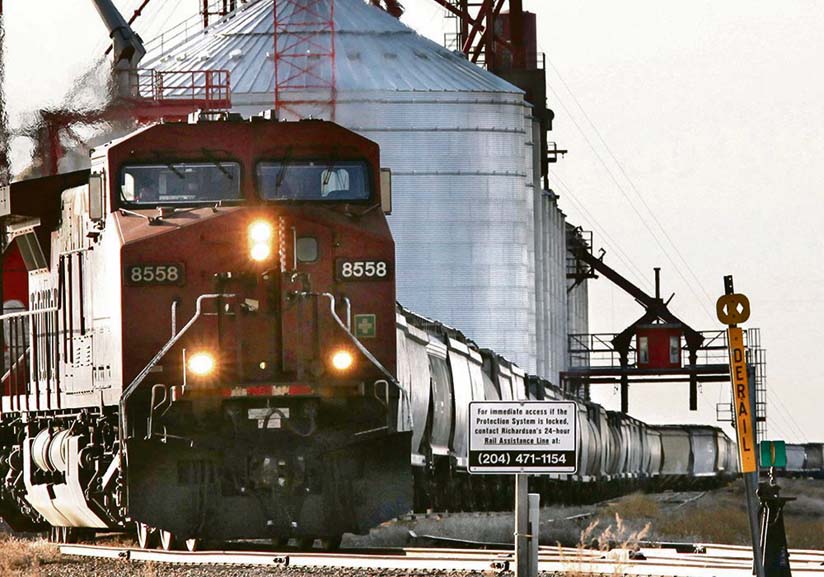

Canada - A strike by rail workers at Canadian Pacific Railway (CP) would have a "potentially disastrous" impact on the
country's economy and could compromise agricultural productivity, according to Canada's commercial fertilizer industry.
In a 11 Mar 2022 news release, Fertilizer Canada called on the Teamster's Canada Rail Conference (TCRC) and CP to "swiftly resolve their
negotiations to avoid a potentially disastrous shutdown to the essential rail supply chain."
TCRC, which represents more than 3,000 unionized workers at CP, including locomotive engineers, conductors, and train workers, announced last week
that its members last month voted overwhelmingly in favour of strike action if a mediated labour agreement cannot be reached by 00:01 on
16 Mar 2022.
The potential work stoppage would have potentially "crippling effects" on the economy and agricultural sector, national and globally,
Fertilizer Canada said.
"Fertilizer Canada and our members are greatly concerned with the looming CP strike," said Karen Proud, president and chief executive
officer of Fertilizer Canada, which represents the country's fertilizer manufacturers, wholesalers, and retailers.
"The agriculture sector is already experiencing supply challenges compounded by the war in Ukraine and cannot withstand any more disruption to
the supply chain without severe consequences for farmers, food security in Canada and worldwide, and the Canadian economy."
Fertilizer Canada said it respects the collective bargaining process, but added that a work stoppage would compromise Canada's position as a leading
global fertilizer supplier and could result in fertilizer production facilities being forced to shut down, impacting Canadian workers, the economy,
and food security.
A strike at CP, Canada's second largest rail carrier, would also compound mounting concerns that domestic deliveries of fertilizer products would be
further delayed, and may not be in position in all regions of Western Canada by the time spring seeding starts in a few weeks.
About 75 percent of all fertilizer produced and used in Canada is moved by rail, Fertilizer Canada vice-president Clyde Graham said.
Deliveries of nitrogen, phosphate, potassium, and sulfur-based fertilizers to wholesalers and retailers throughout Western Canada are normally in
position by the end of March, Graham said.
But several factors, including delayed purchasing decisions by some growers as well as supply chain problems earlier in the year, have pushed
deliveries behind schedule.
Canada's ability to export crop nutrients to growers in other countries would also be compromised.
"The industry is dependent on rail to move product across the country and into international markets who are counting on supply coming from
Canada," Fertilizer Canada said in its news release.
Brian Cross.
(there was no image with original article)
(usually because it's been seen before)
provisions in Section 29 of the Canadian
Copyright Modernization Act.
